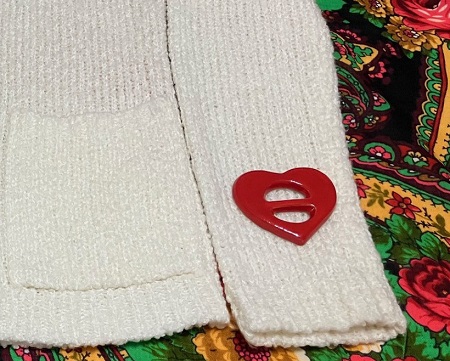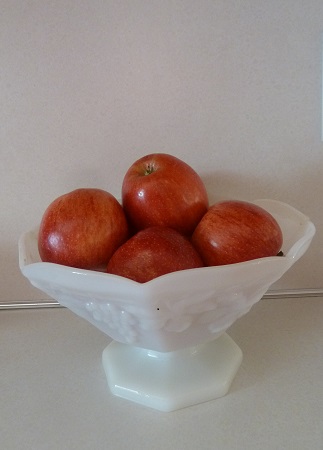Wear Your Heart on Your Sleeve
 Do you ever wear your heart on your sleeve? I don’t mean shirts or sweaters with hearts on them. Do you let your emotions show?
Do you ever wear your heart on your sleeve? I don’t mean shirts or sweaters with hearts on them. Do you let your emotions show?
When you wear your heart on your sleeve, you openly reveal your emotions.
They become obvious to everyone who sees you. They show in your:
- Face
- Words
- Body Language
Wear your heart on your sleeve applies to every emotion.
- Anger makes you blow your top.
- Love brightens the world around you.
- Concern reaches out to those in need.
- Fear makes you tremble.
No one has to wonder how you feel, especially when you are in love.
This expression may originate from a medieval custom.
According to The Phrase Finder, knights wore the name of a woman on their sleeves during tournaments.
The phrase later appeared in Shakespeare’s “Othello.”
Wear your heart on your sleeve with caution.
Openness is not appropriate in every situation. You don’t want to go off the deep end. Use wisdom and kindness in all you do.
Allow God’s love to flow through you regardless of your emotions.
When you let go and let God take control, your heart changes for the better.
“I will praise the Lord with my whole heart” (Psalm 111:1 NIV).
Thanks to Brad Leverett for the suggestion.
Do you have an expression you want explained or a thought about this one? If so, please comment below.
Subscribe to receive my weekly posts by email and receive a free copy of “Words of Hope for Days that Hurt.”
If you enjoyed this post, please share it with your friends.


 Please welcome my friend Carlton Hughes as today’s guest writer. Carlton and I met at
Please welcome my friend Carlton Hughes as today’s guest writer. Carlton and I met at  I used to go to church with a man who introduced me to this phrase. Whenever I greeted him and asked how he was doing, he always answered the same way.
I used to go to church with a man who introduced me to this phrase. Whenever I greeted him and asked how he was doing, he always answered the same way.
 Puppies are cute, sweet, and make us smile. The same is true for puppy love — children or young people falling in love. We smile at puppy love, but we know it seldom lasts.
Puppies are cute, sweet, and make us smile. The same is true for puppy love — children or young people falling in love. We smile at puppy love, but we know it seldom lasts.